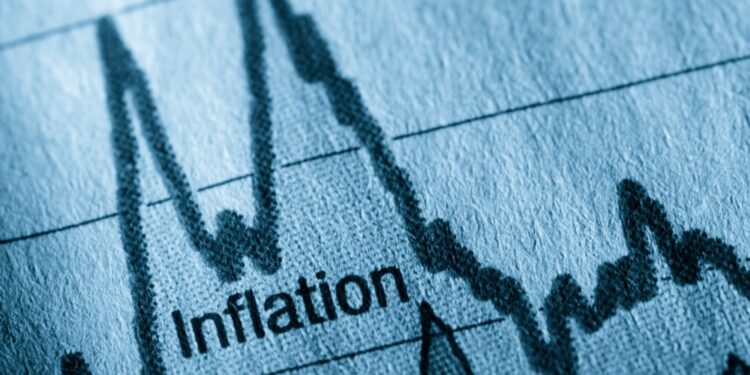Inflation rate falls for the fourth month in a row; now 41.2% in April
The April inflation figures revealed that food inflation decreased to 48.7% from 50.8% in March 2023, while non-food inflation declined to 35.4% from 40.6% in March 2023. Additionally, inflation for domestically produced items was 38.2%, whereas inflation for imported items was 43.1%.
Ghana’s inflation rate decreased for the fourth consecutive month to 41.2% in April 2023 from 45% in March 2023, marking a significant milestone in the country’s disinflation process since January 2023. The drop in inflation was primarily driven by a decrease in food and non-food inflation, according to the Ghana Statistical Service. The current inflation rate is the lowest it has been in almost a year.
The decline in inflation could prompt the Bank of Ghana to keep its policy rate steady at 29.5% during its 112th Meeting, scheduled to begin on May 17, 2023. Although credit remains costly, with average lending rates hovering around 35%.
The April inflation figures revealed that food inflation decreased to 48.7% from 50.8% in March 2023, while non-food inflation declined to 35.4% from 40.6% in March 2023. Additionally, inflation for domestically produced items was 38.2%, whereas inflation for imported items was 43.1%.
Among the five groups that had inflation higher than the national average, Housing, Water, Electricity, Gas, and Other Fuels had the highest inflation rate of 59.0%. Furnishing, Household Equipment, and Routine Household Maintenance recorded 56.3% inflation, followed by Food and Non-Alcoholic Beverages with 48.7%, Personal Care, Social Protections, and Miscellaneous Goods and Services with 48.5%, and Transport with 42.5%.
Regarding food items, eight recorded inflation higher than the overall food inflation rate. Tea and Related Products had the highest inflation of 82.3%, followed by Cereals and Cereal Products with 62.9%, Milk and Diary Products with 61.8%, Fish and Other Sea Foods with 58.3%, Sugar, Confectionary and Desserts with 56.7%, Fruit and Vegetable Juices with 55.2%, Oil and Fats with 53.2%, and Water with 49.6%.
For month-on-month inflation, it stood at 2.4% in April 2023. Food and Alcoholic Beverage had the highest inflation of 4.3%, while non-food inflation was 0.7%.
In terms of regional inflation, the Volta region had the lowest inflation rate of 28.0% in April 2023, while the Western North region had the highest inflation rate of 64.0%. Ghana’s most populous regions, Ashanti and Greater Accra, recorded inflation rates of 31.3% and 39.1%, respectively.
Source: norvanreports


